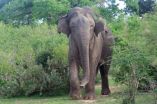(Press-News.org) Singapore scientists from Bioprocessing Technology Institute (BTI) under the Agency of Science, Technology and Research (A*STAR) have for the first time, identified the molecular 'switch' that directly triggers the body's first line of defence against pathogens, more accurately known as the body's "innate immunity". The scientists found that this 'switch' called Bruton's tyrosine kinase (BTK) when turned on, activates the production of interferons - a potent class of virus killers that enables the body to fight harmful pathogens such as dengue and influenza viruses.
While there are anti-viral drugs to treat influenza, the high rates of mutation that are characteristic of the influenza [1] virus have made it difficult to treat with one universal drug or vaccine. As for dengue [2], there are currently no clinically approved vaccines or cures either. This discovery of BTK's role as a critical 'switch' that boosts the body's anti-viral response, paves the way for developing anti-viral drugs that target the BTK 'switch' to fight infectious diseases.
To investigate the role of BTK in innate immunity, the research team from BTI extracted a class of innate immune cells known as macrophages [3] from both normal mice and from mice deficient in BTK and challenged them with the dengue virus. They found that the BTK-deficient immune cells were unable to produce interferons, and hence had much higher viral counts compared to the healthy immune cells that had high-levels of interferons to fight the virus effectively.
To further demonstrate the critical role of BTK in anti-viral response, the team focussed on BTK's role in Toll-like Receptor 3 (TLR3) signaling. TLR3 is needed for cells to activate the interferon response when cells are infected by viruses. The team examined the effect of having a perpetually-"on" or -"off" BTK 'switch' in TLR3 signaling. They uncovered that a constitutively active or "on" BTK 'switch' enhanced the production of interferon, resulting in a stronger and more lasting anti-viral response with significant reduction in Dengue viral counts. In contrast, a perpetually "off" BTK 'switch' led to a poor anti-viral response with very low levels of inteferons produced, and little protection against Dengue virus infection.
Previously, scientists have always thought that BTK is important primarily in antibody production due to observations made of an inherited genetic disorder in humans called X-linked Agammaglobulinemia (XLA). These patients do not have a functional BTK 'switch', and are unable to produce antibodies because defects in BTK cripple maturation of B cells, a type of white blood cell that produces antibodies.
"We are very excited because this is the first time that the link between BTK and its critical role in the immediate anti-viral responses of the immune system, triggered in response to invading viruses like Dengue, is definitively demonstrated", said Dr. Koon-Guan Lee, the first author of this paper.
Said Professor Kong-Peng Lam, Acting Executive Director of BTI and the Head of the Immunology Group that conducted the research, "This study adds new insights to the understanding of how the body's innate immunity is triggered to create an effective immune response. It is a prime example of how better understanding in basic biological systems brings us a step closer to understanding the mechanism of human diseases, and enables us to find more effective treatment strategies to combat deadly viral diseases, which we have yet to find cures for."
###
Footnotes:
[1] http://www.who.int/biologicals/vaccines/influenza/en/index.html
[2] Dengue is globally the most common mosquito-borne infection after malaria, with an estimated 50-100 million infections occurring annually. Symptoms range from mild to incapacitating high fever, with potentially life-threatening complications. http://www.who.int/mediacentre/factsheets/fs117/en/
[3] Macrophages are a type of white blood cell that circulates throughout the bloodstream, engulfing foreign agents in the body.
Notes for editor:
The research findings described in this media release can be found in the 10 April 2012 issue of Proceedings of the National Academy of Sciences (PNAS), USA under the title, " Bruton's tyrosine kinase phosphorylates Toll-like receptor 3 to initiate antiviral response " by Koon-Guan Lee [a], Shengli Xu [a], Zi-Han Kang [a], Jianxin Huo [a], Mei Huang [b], Dingxiang Liu [b], Osamu Takeuchi [c], Shizuo Akira [c], and Kong-Peng Lam [a,1]
[a]Immunology Group, Bioprocessing Technology Institute, Agency for Science, Technology and Research (A*STAR), Republic of Singapore 138668;
[b]School of Biological Sciences, Nanyang Technological University, Republic of Singapore 637551; and
[c]World Premier International (WPI) Immunology Frontier Research Center, Osaka University, Osaka 565-0871, Japan
[1]To whom correspondence should be addressed. E-mail: lam_kong_peng@bti.a-star.edu.sg.
Abstract of this article can be accessed from http://www.pnas.org/content/early/2012/03/23/1119238109.abstract
AGENCY FOR SCIENCE, TECHNOLOGY AND RESEARCH (A*STAR)
For media queries and clarifications, please contact:
Sarah Chang (Dr.)
Corporate Communications
Agency for Science, Technology and Research
Tel: (65) 6826 6442
Email: chang_kai_chen@a-star.edu.sg
About the Bioprocessing Technology Institute (BTI)
Bioprocessing Technology Institute (BTI) is a member of the Agency for Science, Technology and Research (A*STAR). Established in 1990 as the Bioprocessing Technology Unit, it was renamed the Bioprocessing Technology Institute (BTI) in 2003. The research institute's mission is to develop manpower capabilities and establish cutting-edge technologies relevant to the bioprocessing community. Someof the key research areas include expression engineering, animal cell technology, stem cell research, microbial fermentation, downstream purification and analytics.
For more information about BTI, please visit www.bti.a-star.edu.sg
About the Agency for Science, Technology and Research (A*STAR)
The Agency for Science, Technology and Research (A*STAR) is the lead agency for fostering world-class scientific research and talent for a vibrant knowledge-based and innovation-driven Singapore. A*STAR oversees 14 biomedical sciences and physical sciences and engineering research institutes, and six consortia & centres, located in Biopolis and Fusionopolis as well as their immediate vicinity.
A*STAR supports Singapore's key economic clusters by providing intellectual, human and industrial capital to its partners in industry. It also supports extramural research in the universities, and with other local and international partners.
For more information about A*STAR, please visit www.a-star.edu.sg.
A*STAR scientists discover 'switch' to boost anti-viral response to fight infectious diseases
2012-05-12
ELSE PRESS RELEASES FROM THIS DATE:
BookWhirl.com Kicks Off Copyediting Service
2012-05-12
BookWhirl.com, one of the industry's leading online service providers, launched the Copyediting service. The introduction of the new service marks the second leg of company's month-long e-Publishing Revo Campaign.
The Copyediting service enables self-published authors to access professional copyeditors who reviews and checks their manuscripts for consistency and accurate use of grammar. BookWhirl.com offers this service to raise self-publishing standards, strengthen publishing opportunities, and create inexpensive yet professional copyediting services.
"We feel ...
Vitamin K2: New hope for Parkinson's patients?
2012-05-12
Neuroscientist Patrik Verstreken, associated with VIB and KU Leuven, succeeded in undoing the effect of one of the genetic defects that leads to Parkinson's using vitamin K2. His discovery gives hope to Parkinson's patients. This research was done in collaboration with colleagues from Northern Illinois University (US) and will be published this evening on the website of the authorative journal Science.
"It appears from our research that administering vitamin K2 could possibly help patients with Parkinson's. However, more work needs to be done to understand this better," ...
Ancient Medicine Spring Water a Modern Holistic Remedy for Autistic Children
2012-05-12
Twelve miles from Atlanta, Georgia is the city of Lithia Springs where an ancient medicine spring has attracted health seekers for countless centuries. In the 1880's this ancient healing spring was named Lithia Springs because of the discovery of lithium carbonate in its water (lithia water). The city of Lithia Springs was incorporated in 1882 and was named after the spring.
Dr. Amy Yasko noted microbiologist specializing in autism spectrum disorder (ASD) presented at a recent conference, a breakthrough hypothesis on autism and the lithium connection. She believes that ...
Living longer – variability in infection-fighting genes can be a boon for male survival
2012-05-12
Females of mammals (including humans) tend to outlive males, a circumstance that is usually attributed to males´ more aggressive and hence energy-depleting behaviour, especially when they compete for females. This might also explain why males of many species usually show a higher parasite burden than females. Therefore, high variability of immune genes, supposed to reduce susceptibility to pathogens, may be more important for males. Scientists at the Research Institute of Wildlife Ecology (FIWI) of the University of Veterinary Medicine, Vienna have now found that male Alpine ...
Lack of basic evidence hampering prevention of sudden heart attacks in sport
2012-05-12
What can we do to reduce the number of tragic cardiac events in sport? doi 10.1136/bjsports-2012-091252
Big gaps in basic knowledge about the numbers and causes of apparently inexplicable heart attacks among young sportsmen and women are seriously hampering our ability to prevent them, says a sport and exercise medicine specialist in the British Journal of Sports Medicine.
At the very least, we need to start building reliable databases of all such events across sport, in a bid to start plugging these knowledge gaps, say Dr Richard Weiler and colleagues.
His comments ...
Barley takes a leaf out of reindeer's book in the land of the midnight sun
2012-05-12
Barley grown in Scandinavian countries is adapted in a similar way to reindeer to cope with the extremes of day length at high latitudes. Researchers have found a genetic mutation in some Scandinavian barley varieties that disrupts the circadian clock that barley from southern regions use to time their growing season. Just as reindeer have dropped the clock in adapting to extremely long days, so has Scandinavian barley to grow successfully in that region's short growing season. This new knowledge may be useful in efforts to adapt crops for regions where the growing season ...
Humanitarian Nonprofit, PCI Global, Wins the Good Neighbor Contest - Earning an Exclusive Feature in Business Review USA
2012-05-12
WDM Group, a rapidly growing global media company offering a diverse portfolio of interactive digital publications aimed for affluent C-level executives, is pleased to announce the winner for the Good Neighbor Program: PCI Global. The nonprofit, with an international office based in San Diego, amassed over 300 votes to win the majority vote. PCI Global will be featured in July's edition of Business Review USA.
"We are delighted and so proud of our supporters for rallying around us," says Sr. Director of Marketing and Communications Annette Greg. "For us, ...
High-fat diet lowered blood sugar and improved blood lipids in diabetics
2012-05-12
People with Type 2 diabetes are usually advised to keep a low-fat diet. Now, a study at Linköping University shows that food with a lot of fat and few carbohydrates could have a better effect on blood sugar levels and blood lipids.
The results of a two-year dietary study led by Hans Guldbrand, general practitioner, and Fredrik Nyström, professor of Internal Medicine, are being published in the prestigious journal Diabetologia. 61 patients were included in the study of Type 2, or adult-onset diabetes. They were randomized into two groups, where they followed either a low-carbohydrate ...
Lorraine Lea Linen: Family Values that Deliver, in Retail Digital
2012-05-12
In an interview with Retail Digital, Company Director Adrian Ryan explains how Lorraine Lea Linen has positively impacted the lives of Australians for over twenty-five years. Not only in supplying superior linen products in a new and innovate way, but by improving the lives of their sales force, and the most worthy citizens of their community.
Few successful companies were formed on the solid foundation of family like Lorraine Lea Linen. Started in 1986 by now Director Adrian Ryan's father, Peter Ryan, the company was started with the vision to provide an alternative ...
The absence of elephants and rhinoceroses reduces biodiversity in tropical forests
2012-05-12
The progressive disappearance of seed-dispersing animals like elephants and rhinoceroses puts the structural integrity and biodiversity of the tropical forest of South-East Asia at risk. With the help of Spanish researchers, an international team of experts has confirmed that not even herbivores like tapirs can replace them.
"Megaherbivores act as the 'gardeners' of humid tropical forests: They are vital to forest regeneration and maintain its structure and biodiversity", as was explained to SINC by Ahimsa Campos-Arceiz, the lead author of the study that was published ...

